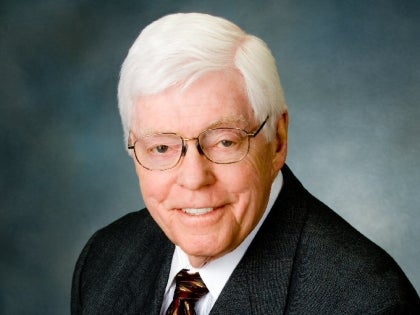
Senate Announces Comprehensive Energy Plan
Senator Thomas P. Morahanannounced a NYS Senate comprehensive energy plan that would provide $350 million in relief from high energy costs to small businesses to help them create and retain jobs. Like millions of New York homeowners, small businesses have cited high energy costs as a significant problem that is hurting their bottom lines.
In addition to announcing a plan helping small businesses, the Senate acted on an energy plan that would build on the recent $100 million increase in the Home Energy Assistance Program by providing heating assistance to more senior citizens, capping the State taxes on gasoline and encouraging energy conservation and development of alternative energy sources to lessen our dependency on foreign oil.
"The Senate’s energy assistance plan would give some money back to small businesses so they don’t have to cut someone’s job to pay the utility bill. It would go beyond the HEAP plan we passed last week by providing more direct energy assistance to seniors and it includes a long term vision for alternative energy sources and conservation plan to reduce our dependence on foreign oil, " said Senator Morahan .
The centerpiece of the Senate energy plan would address that concern by providing a $350 million refundable tax credit that would help 386,000 eligible small businesses across New York State afford the rising cost of energy. Businesses with fewer than 20 employees would be eligible for the assistance. Businesses of this size employ about 1.4 million New Yorkers.
Under the plan, a credit of two cents per Kilowatt Hour (KwH) would be applied directly to eligible businesses’ tax liability, while businesses that do not owe taxes would receive a rebate check. The benefit level of two-cents per kilowatt hour approximates the rate benefit provided under the Power for Jobs program, which has proven to be one of the state’s most important economic development programs.
The Senate plan excludes businesses that already receive similar benefits through the Empire Zone and Power for Jobs programs. It also excludes sole proprietorships working out their residence, since it would be difficult to segregate residential electric usage from business usage.
The Senate plan will also eliminate the Petroleum Business Tax on non-residential heating fuel, further reducing energy expenses for small businesses by up to $7 million a year.
The Senate will act today on "Senior Heat" program legislation which would provide $200 rebate checks to eligible senior citizen homeowners to help offset the cost of home heating. Seniors approved for the enhanced STAR school property tax rebate program (at least 65 years old with an annual income of less than $64,650) would be eligible for the Senior Heat program. The plan would also provide a $100 refundable State tax credit to eligible senior citizens who rent and pay for their heat. The program would provide an estimated $140 million in assistance to more than 640,000 senior homeowners and renters.
Last week, the Legislature passed a bill, now law, that will provide an additional $100 million in emergency funds for the Home Energy Assistance Program to ensure that seniors and low-income New Yorkers are able to afford to heat their homes this winter.
The Senate also acted on a bill to place a cap on the State and local sales taxes on gasoline that would save consumers about $240 million annually as gas prices currently average nearly $2.60 per gallon, and all localities participate. The New York City Council, and many other local government officials, have also asked the Senate to adopt a cap on gas sales taxes.
The Senate energy plan would cap the State and local sales tax on gasoline at a taxable value of $2 per gallon. The cap would save motorists an estimated $120 million annually in State sales taxes, if gas prices stay at about $2.60 per gallon. The cap covers the local sales tax on gas unless a local government votes to opt out of the cap. If all localities participate, the plan would generate another $120 million in savings.
####
